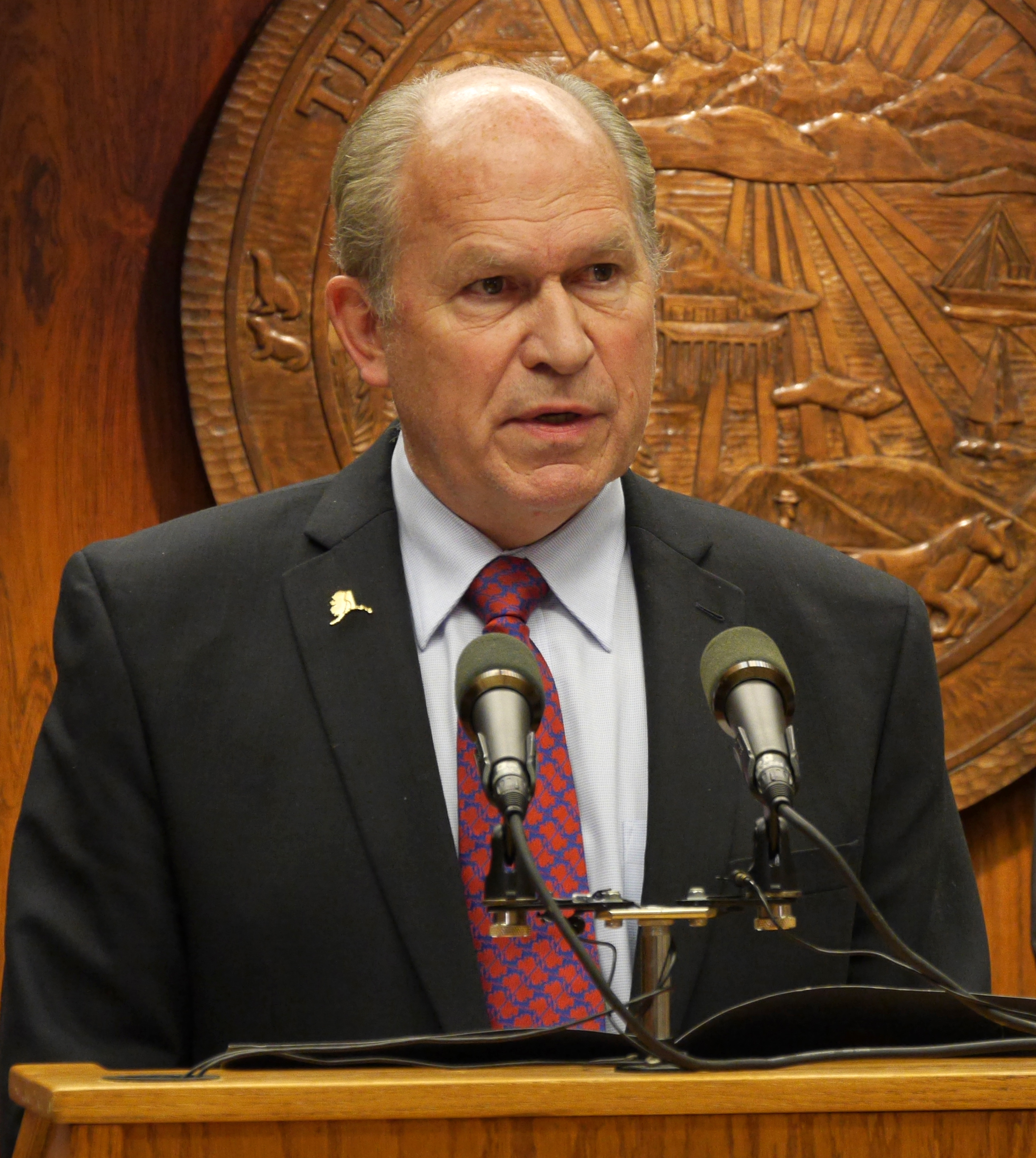Progress on the state government budget has slowed to a crawl this week. But Governor Bill Walker remains hopeful the Legislature can reach an agreement on an oil and gas tax bill that’s at the center of budget talks.

Walker says there are good ideas for reaching an agreement, including provisions in the Senate version. That bill would end credits for small Cook Inlet producers. But the Senate Bill wouldn’t save the state as much as Walker’s proposal — a fact the governor noted on Monday.
“I thought it was pretty good,” Walker said of the Senate bill. “It’s pretty close to where we are. And, you know, it’s not a matter of it has to be exactly my plan necessarily. But whatever we don’t do in that regard – dollar-wise — we need to find that someplace else.”
Republicans lead large majorities in both of the Legislature’s chambers, but the House minority has leverage. That’s because a three-quarters vote is needed to spend money from the Constitutional Budget Reserve.
House Minority Leader Chris Tuck said the House majority has to decide what it wants in an oil and gas tax package. Speaker Mike Chenault sent the House bill to the Rules Committee last week.
“We’re united in our side on what we want to see. But the reason why that bill got kicked back over to Rules is because it would have failed on the floor. And it would have failed for different reasons,” Tuck said.
“But it still would have failed. We want to keep that alive. We want to keep things working. Chenault has, um, a lot of different characters in his caucus. He’s working it. He’s trying to come up with a solution. And we’re waiting to see what they’re going to agree to amongst themselves to see whether or not we’re going to agree to that.”
Members of the Republican-led House majority caucus have been discussing oil and gas tax credits in private meetings.
Progress is occurring on a separate area of the budget – one that will affect all Alaskans. The House Finance Committee is discussing a bill that would draw billions of dollars from the Permanent Fund earnings reserve. The bill also would cut Permanent Fund dividends in half.
The latest version of the Permanent Fund bill includes a provision that would limit fund spending on the government as oil revenues rise. Once oil revenues reach 3.1 billion dollars, no money would be spent from the Permanent Fund.
House Finance Co-chairman Fairbanks Republican Steve Thompson noted that if the Legislature doesn’t take any action on the Permanent Fund, the earnings fund would be exhausted in a few years. This would eliminate all dividends.
Walker said there’s common ground on the Permanent Fund issue.
“I think that’s moving along pretty well,” Walker said. “I don’t think we’re that far apart on that at this point. So, I think it’s getting much closer. So I’m quite optimistic about that piece of it coming into play this year.”
Construction has begun on the Capitol building in Juneau. Only the finance and conference committees – as well as House Rules — are scheduled to meet Wednesday.
Andrew Kitchenman is the state government and politics reporter for Alaska Public Media and KTOO in Juneau. Reach him at akitchenman@alaskapublic.org.




